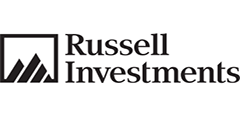Expert: Mark Hayhoe, Russell Investment 
The expert from Russell Investments started by stating that they would probably need 2 days to cover the subject in detail, but they would do what they can in the time given. He went around the table requesting that each person states what they were looking to gain from the session. A little more knowledge on the roundtable subject and other people’s experiences seemed to be the general consensus.
How will investors achieve their goals – do they have goals or aspirations?
We have to prioritise. Are the clients goals clear from the initial meeting? We need to manage expectations - aspirations and realistic goals are different. Looking at the client, we need to know what to achieve for them. The adviser has no control of the markets but does have control of what the client is looking for – upskill financial planners. Our job is to influence the clients using our knowledge, but not to tell them what to do. Market cycle where euphoria represents the maximum risk and despondency represents the maximum opportunity. Best advisers sell products on the relationship they have. An advisor can prepare 70% of a fact find before the client meeting using Zoopla for house prices and other available tools.
Key risks – it is up to the client to decide if they want to take any risk. Returns are becoming riskier however, with far more variation in products required to return 7.5% in 2017 compared to 1995 where this was achieved 100% through bonds. Risk of 50% now compared to 1995 with a 15.5% risk required to make a return of 7.2%. The key risks are Investor, Lifetime Wealth Strategy, Regulation, Investment Markets and Adviser. Risk profiling – where firms are not considering the limitations of the tool they used or where the recommended solution did not match the risk the customer was willing or able to take.
Costs, charges and regulations – all feed into Lifetime Wealth Strategy. Investment managers have been overpaid for a long time now, as we move forward clients want financial advice and expect ups and downs but are looking for safe growth at a much lower cost. Throughout goals change, aspirations change and clients change. Figures given in percentages just mask, pounds count and clients understand figures priced in pounds. Use correct products and don’t hide costs. Communications from adviser, fund manager, platform must be clear. If a client is paying these fees are they achieving their goals? What are they getting for their money? Does it represent value for money? In order to meet its responsibilities under the clients best interest rule and customer’s interests a firm should consider whether the personal recommendation is likely to be of value to the retail client when total charges the retail client is likely to be required to pay are taken into account.
What it means for your centralised investment proposition – designed for cautious investor. Can use natural income or growth if don’t have decumulative proposition. Take from capital gains tax, better return, expensive to take from natural income. Ensure client understands and try and make it a smooth process. Some advisers seem to have forgotten how to talk with clients. Look at the investment timeline. Centralised investment proposition is underlined by range of models, communication, price, risk profiling, platform and mandate.
Key things – periodic reviews, what are you going to deliver for your customer, make full notes of the meeting, keep it simple, what has changed since we last met. What differentiates you from other adviser? The number one reason clients leave advisers is that there is no relationship. ‘’Why do I pay X £15k a year?” Take time to take a reality check, your business is to deliver to clients, rules are there but don’t get drawn in to needing complicated processes.


